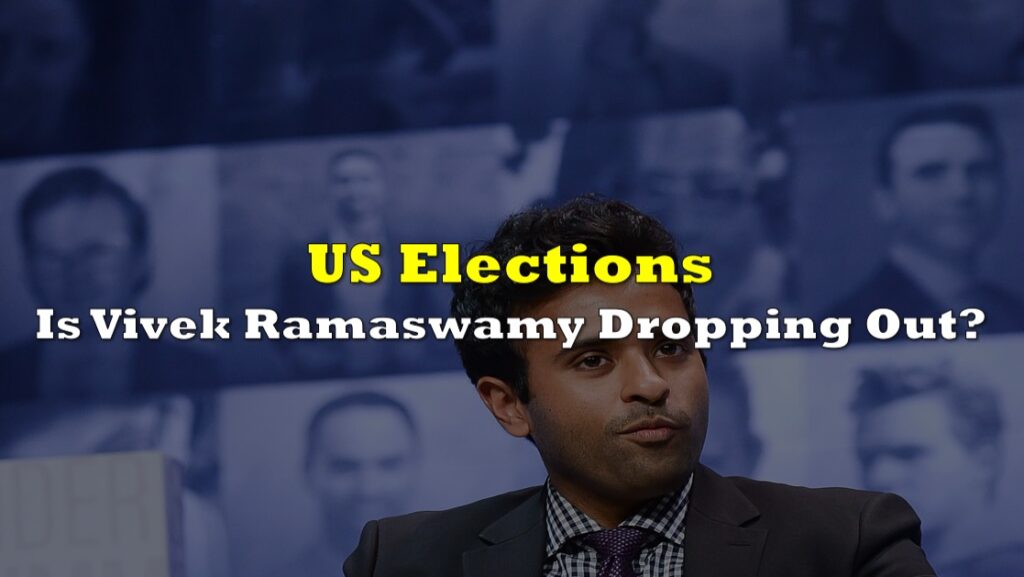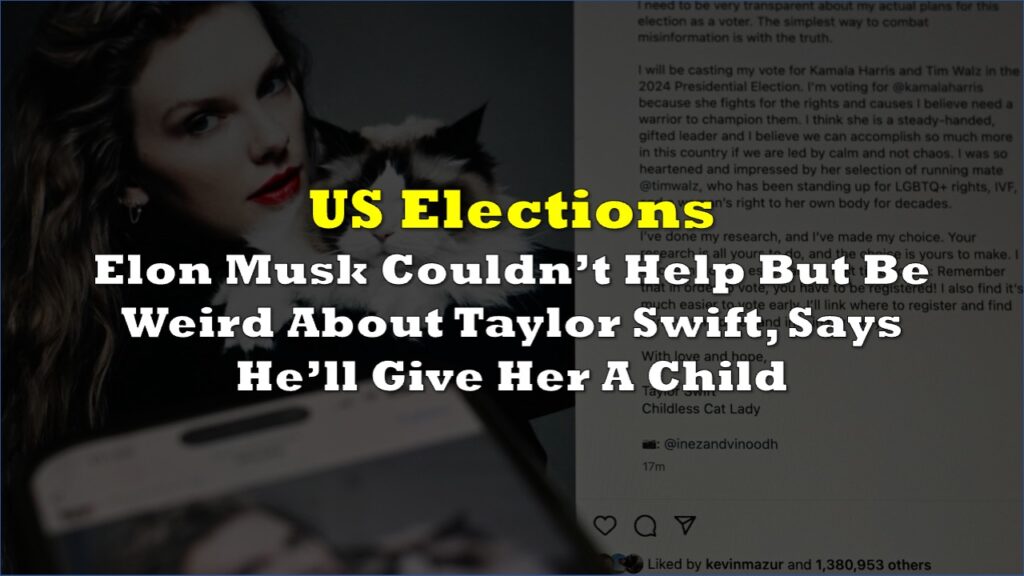Right-wing political commentator Tim Pool has made headlines once again, this time for a legal battle with U.S. Vice President Kamala Harris, filing a defamation lawsuit against her presidential campaign based on an allegation that a tweet from the campaign damaged his reputation. The legal action has stirred considerable attention online, as well as skepticism, with many questioning both the merits of the lawsuit and the broader implications for free speech.
The complaint filed in West Virginia alleges that the Harris campaign shared a clip from Pool’s show that was taken out of context and subsequently used to tarnish his reputation. Pool claims the video, posted on social media by the campaign, misrepresented his views, leading to a public outcry and affecting his business relationships.
The KamalaHQ post accompanying the clip made claims that raised eyebrows: “Trump operatives say their Project 2025 plan is to give Trump total, unchecked legal power so they can jail and execute those who don’t support Trump if he wins (They have since scrubbed this video from YouTube).”
In the video, Pool engages in conversation with far-right conspiracy theorist Laura Loomer. While neither Pool nor Loomer were named directly in the post, the video snippet showed Pool making incendiary comments about Democrats.
“Should Democrats be in jail? No question,” Pool said in the clip. “When Donald Trump gets elected, should he start locking them up? No question. Should there be lists of Democrats that need to go to jail, one hundred percent. And the reason for that is they committed crimes.”
Loomer chimed in during the discussion, pushing the conversation further by suggesting that Trump’s political opponents should not just be jailed, but executed. Loomer remarked, “Not just jail—they should get the death penalty!”
Interestingly, the same video clip had previously been posted by a Biden campaign account in June, when Joe Biden was still leading the Democratic race, under the handle BidenHQ. Pool didn’t publicly object to that earlier post. It wasn’t until August—after Kamala Harris took over the campaign’s social media handles—that Pool threatened legal action, tweeting: “I have engaged legal counsel. We are preparing to take action. More to come.”
The timing of Pool’s lawsuit has raised questions about why he chose to respond to the August post, even though the June post had gone largely unchallenged. Critics speculate that Pool may have seen an opportunity to draw attention to himself during a high-profile election cycle.
Pool announced the lawsuit via X, writing, “I have filed my lawsuit against @KamalaHQ. I will be going over the filing on the show at 8 pm”. He also shared a link to his YouTube channel, where he discussed the lawsuit in detail with attorney Andrew Wilson.
I have filed my lawsuit against @KamalaHQ
— Tim Pool (@Timcast) September 17, 2024
I will be going over the filing on the show at 8pm
Tim Pool Sues Kamala Harris For President, Defamation Lawsuit Filed w/Andrew Wilson | Timcast IRL https://t.co/NupCUdIiHn
The lawsuit itself outlines that Pool believes the Harris campaign engaged in a smear campaign against him by strategically sharing content that allegedly painted him as a political extremist.
In a follow-up video responding to the Harris campaign post, Pool vehemently denied that he advocated for the execution of political opponents. He pointed out that he has consistently opposed the death penalty throughout his career, stating:
“I am opposed to the death penalty in all circumstances. I have argued against the death penalty in every circumstance,” Pool said. According to Pool, the video was misleading because it cut off before he had a chance to argue against Loomer’s extreme views.
However, the original video has since been scrubbed from YouTube, making it difficult to verify whether Pool did, in fact, dispute Loomer’s comments during that particular conversation.
Pool’s lawsuit does not specify the exact amount in damages he is seeking, but given the prominence of the parties involved, the stakes are notably high.
The lawsuit has garnered a mix of reactions from the public and legal experts. Andrew Fleischman, a prominent legal commentator, took to social media, expressing doubts about Pool’s legal strategy stating, “The problem with having Tim Pool sue you is that Tim Pool uses Tim Pool’s judgment to select his lawyer, and that is not a recipe for success.”
I am not saying that Tim Pool is bought and paid for but I certainly might say pretty much whatever you wanted me to for 100k a video
— Andrew Fleischman (@ASFleischman) September 18, 2024
Others, like political commentator Tony Michaels, have criticized Pool’s actions as hypocritical: “Tim Pool, the self-proclaimed ‘free speech warrior,’ is now suing Kamala Harris’ campaign for daring to share a clip from his show. Why? Because they exposed his hypocrisy! The audacity to sue for showing the world his visceral, right-wing rants out of context?”.
Michaels went on to argue that the lawsuit is less about defamation and more about controlling the narrative, a charge Pool has yet to address directly.
🚨 Tim Pool, the self-proclaimed "free speech warrior," is now suing Kamala Harris' campaign for daring to share a clip from his show. Why? Because they exposed his hypocrisy!
— Tony Michaels 🎙 (@thetonymichaels) September 1, 2024
This is the same guy who claims to fight for open discourse but can't handle his words being used… pic.twitter.com/6ZLBDQR8lr
Beyond the defamation lawsuit, Pool’s public image has been complicated by a series of recent controversies. Earlier this month, the Justice Department disclosed that Russian state media funneled $10 million to an unnamed Tennessee-based media company. Investigations quickly revealed that the company in question was Tenet Media, Pool’s employer. Tenet Media is alleged to have unknowingly produced pro-Russian propaganda, aligning with the interests of the Kremlin.
Following the revelation, Tenet Media shut down operations, and Pool has insisted that he was unaware of the company’s ties to Russian disinformation efforts.
“If these allegations are true, then I was deceived,” Pool stated. Despite the serious nature of these allegations, Pool has maintained that his business was most affected by the KamalaHQ post—not the federal probe into his employer’s activities.
Pool has also claimed that trespassers have appeared at both his home and his neighbor’s home, incidents he believes are linked to the Harris campaign’s post. “There have been trespassers, and I believe it’s a direct result of the smear campaign against me,” Pool said.
At the heart of the case is a fundamental question about free speech and the extent to which public figures can control how they are portrayed. Pool has built his career on promoting open discourse and challenging mainstream narratives. However, his lawsuit could be seen as an attempt to stifle criticism—something that runs counter to the free speech principles he often espouses.
Pool’s critics argue that, as a public figure, he should expect scrutiny, including negative portrayals, as part of being in the spotlight. In the eyes of many, this lawsuit raises concerns about the potential chilling effects on political speech, especially if such cases gain traction in the courts. After all, the threshold for proving defamation against a public figure in the U.S. is notoriously high, as the plaintiff must demonstrate that the defendant acted with “actual malice”—a standard established in the landmark Supreme Court case New York Times Co. v. Sullivan.
Legal experts have weighed in on Pool’s chances of success. Legal commentator Rob Freund commented on the case, stating, “Will post the order when he loses”, implying that Pool’s case is unlikely to succeed in court.
I dunno, wasn't there some other news about Pool recently that might cause people to distance themselves from him? pic.twitter.com/pNlFEATjRJ
— Rob Freund (@RobertFreundLaw) September 18, 2024
While Pool has been vocal about his intentions, Harris’ campaign has largely remained silent on the matter, declining to make any public statements regarding the lawsuit.
On his podcast, Pool framed the lawsuit as a necessary step to defend his reputation. He described the situation as one where he had no choice but to pursue legal action in order to protect himself from further damage.
“I’m not doing this for money; I’m doing this because people need to understand that there are consequences for defamation, even if it comes from a high-profile political campaign,” he said.
Information for this briefing was found via the sources mentioned. The author has no securities or affiliations related to this organization. Not a recommendation to buy or sell. Always do additional research and consult a professional before purchasing a security. The author holds no licenses.









